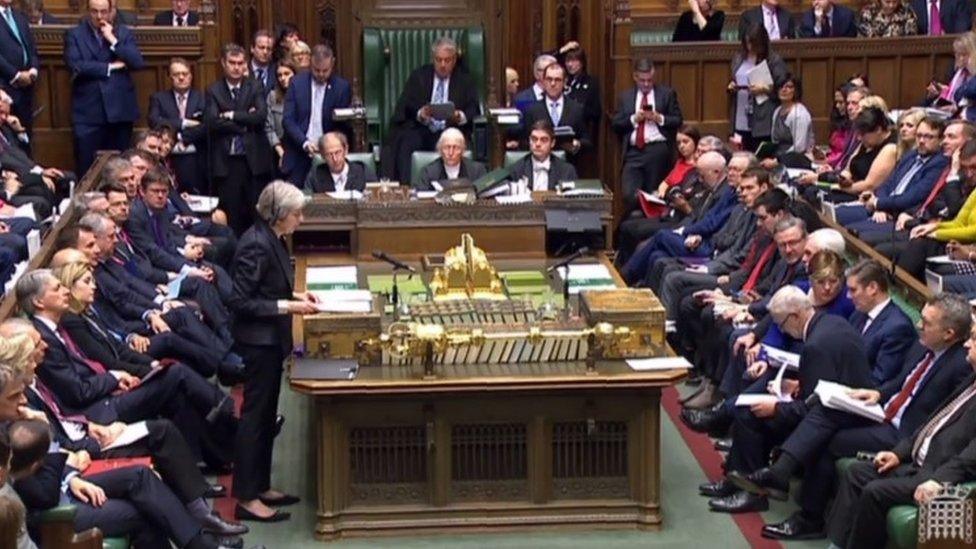Brexit: A dilemma for the People's Vote campaign
- Published
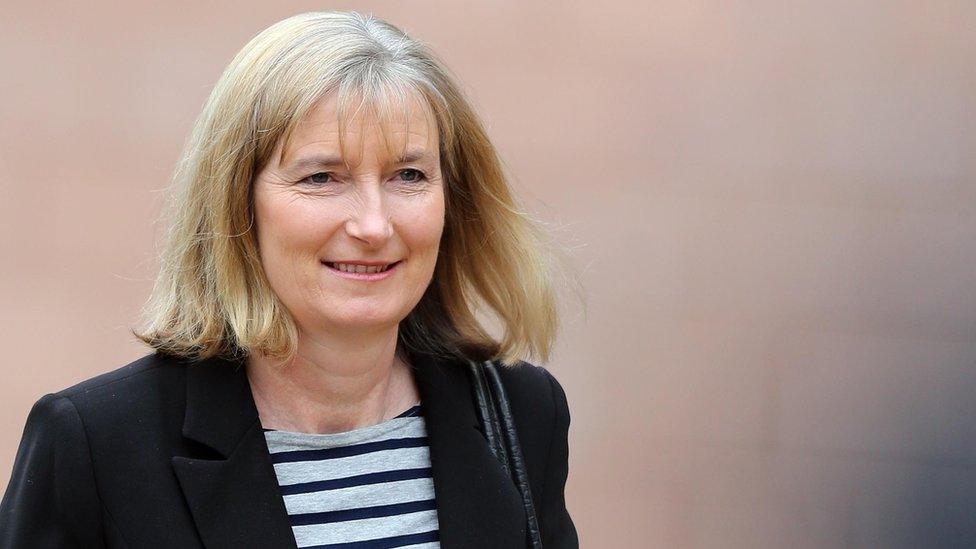
Sarah Wollaston is one of two Conservative MPs who make up "the four doctors", says Chris Mason
The People's Vote campaign for a further EU referendum is reaching a critical moment - what is its next move?
Enter the four doctors who also happen to be members of Parliament.
Labour's Dr Paul Williams, Conservative GPs turned MPs Dr Phillip Lee and Dr Sarah Wollaston, and the SNP's Dr Philippa Whitford are carefully pondering their next move.
Messages are zipping between them, trying to work out whether it is worth putting down an amendment to the big Brexit vote in parliament on 11 December, so MPs can express their support for another referendum.
They are protagonists in one of the many sub-plots being whispered about here at Westminster, in a play called "what happens when....?".
A case of timing
The "when" is technically an "if", but feels increasingly likely that the prime minister's vision of Brexit, agreed with the European Union, will be rejected by Parliament next month.
The big question will then be: What happens next?
The honest answer is no one knows.
But that also means the stage will appear to be clear - or as clear as it has been for a long time - for those with alternative visions of the UK's future relationship with the EU to make their case, and try to persuade Parliament to back it.
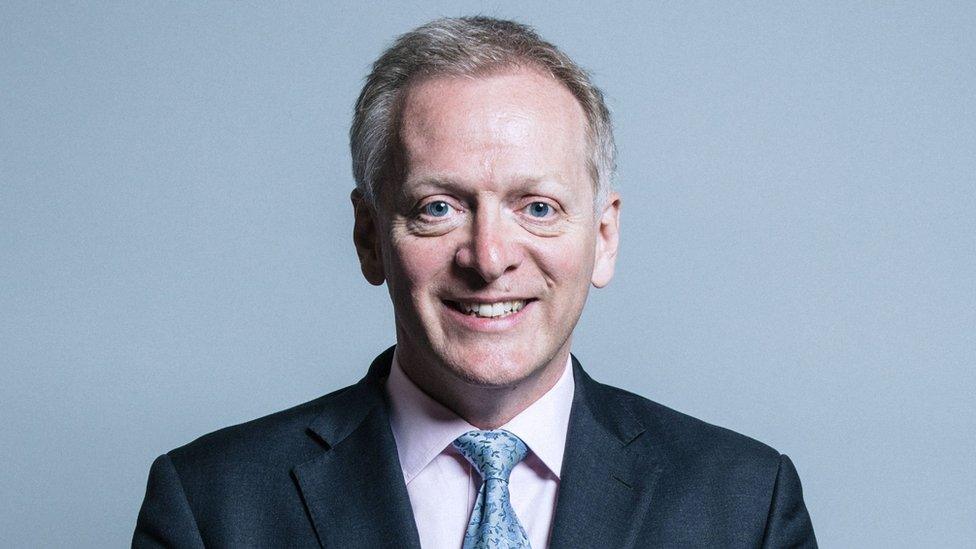
Dr Philip Lee is said to know it is all about timing
So, back to our four doctors.
I'm told they are in a "genuine dilemma".
Part of them is itching to articulate in Parliament, with a vote, the views of those hundreds of thousands who marched through London calling for a "People's Vote" in October.
But they know they only have one chance and don't want to, as it was put to me, "scupper the whole process" by having a vote in the House of Commons, failing to get the numbers needed to get it through - and allowing opponents to say MPs don't back another referendum.
That, they fear, could kill the idea stone dead.
As text messages ping from Stockton-on-Tees to Totnes, Bracknell to Central Ayrshire, the constituencies of the doctors, they are thrashing out what to do.

Read more:

Their deadline isn't imminent. I'm told an amendment doesn't have to be tabled until 10 December, the day before the vote.
Some think it would be very strange if Parliament does not discuss a referendum in the next few weeks.
But senior voices in the People's Vote campaign are urging restraint.
They should be patient, is the essence of the message.
The focus must be, they argue, on the moment when the campaign's strength is at its greatest - and some believe that moment would be immediately after any defeat for the government on its deal.
And this is where Labour's backing of a cross-party attempt to ensure the UK cannot leave the EU without a deal is important.
Perhaps, some ponder, it could be a necessary, but not sufficient stepping stone towards another referendum.
The thinking goes like this: if parliament spoke loudly against no deal, but also rejected the government's proposed deal, what happens next?
The government could still press ahead with a no-deal Brexit.
But advocates of another referendum could pop up and say "Parliament is gridlocked, there's no majority for anything, so let the people have a say".
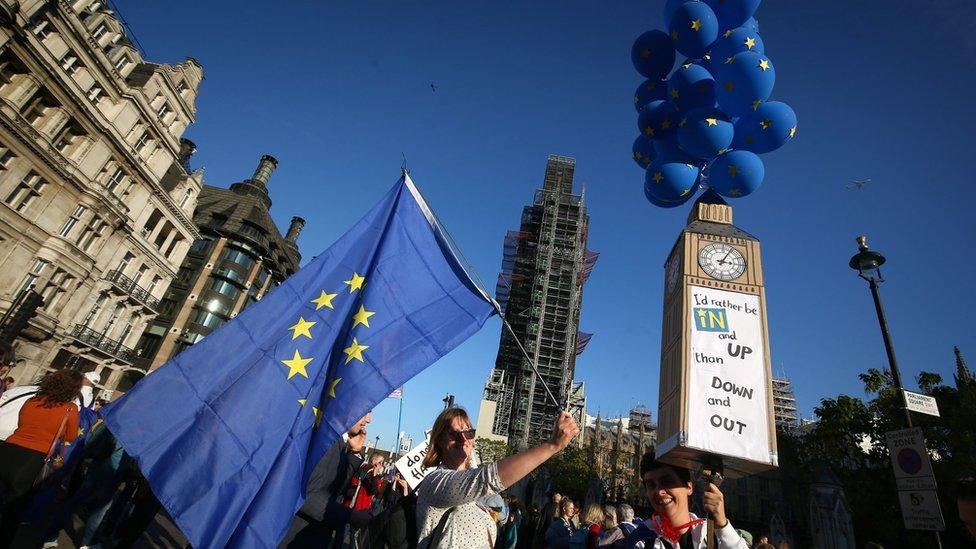
Tens of thousands marched for a so-called People's Vote
At that point, they hope, Labour will have called for a general election but failed to get one, and so will endorse another referendum.
And so there might be a Parliamentary majority for a further referendum.
That does not guarantee there would be one: a government would have to bring forward legislation to make it happen and the UK's departure date from the EU would have to be postponed.
These are both huge steps.
And who knows what the question would be in any referendum, when it would be held, and who would win?
But this is the outline of the discussion going on among those who would love to see it happen; the thinking in the middle of one of the many sub-plots of fevered conversation going on here.
A campaign long dismissed by its critics as marginal, feels like it has some momentum.
And that is because Westminster is agog with a guessing game.
Let's not dignify it with highfalutin language, that is precisely what it is.
But when the future is so uncertain, plenty are willing to sketch out how they would like to see it look.
- Published11 December 2018
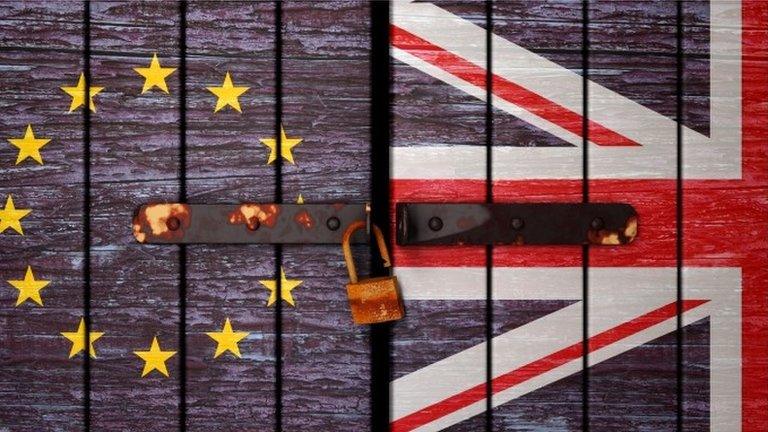
- Published30 November 2018
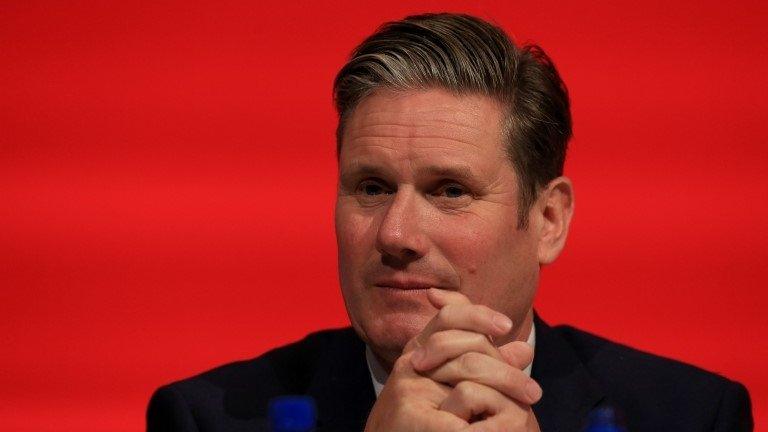
- Published30 November 2018
- Published26 November 2018
